Do you remember the moment you first realized, “Hey, this emotional stuff really works?!”
My EQStory: Stories of Inspiration about Social Emotional Learning (SEL) and Emotional Intelligence (EQ)
Our mission is to inspire and educate the world by sharing EQ and SEL. Twenceforth, we are collecting a-ha / breakthrough / life-changing personal stories about the magic of SEL & EQ!
Whether you’re an EQPro or an EQRookie, please share your story about the moment EQ touched your heart and you were first ‘sold’ on the fact that Thoughts + Emotions really do matter!
Type in a comment below and we’ll post it on the page for you.
Woohoo — #EQRocks!
“Lucky me!”

by Bill Overton, EdD’s SEL Story
I was extraordinarily lucky to have been hired at an elementary school in the Bay Area after I graduated from college. I was even more fortunate that I was hired at a school that had already become believers in the importance and value of social-emotional skills.
The school was a public alternative school whose alternative was treating everyone in the school community as equals with respect, kindness, and optimism. As you might realize this was no easy feat, but it was one that was always on our minds and one that we were all committed to practice and deserving to receive.
It basically meant that we treated our students always as equals with respect and gentility. We also treated everyone, even irate parents and our students, as people having legitimate feelings and who were deserving be listened to. The feeling of shared respect and the power to make choices and decisions that were best for each of us, was pervasive and institutionalized throughout our school day.
Teachers had several meetings with their students each day debriefing issues that came up at recess and discussing the different concepts related to emotional intelligence. In that way, we were all committed to our students’ social and emotional futures even more it seemed at times than their academic ones. The entire school was behind this movement, often delaying academic lessons in lieu of addressing important SEL lessons. The interesting thing, though, is that you’d assume that test scores would be significantly lower than in other similar schools. That was not the case though. What the research proved years later was evident at my school early on: quality SEL programs enhance cognitive academic growth.
In fact, we became a school whose playground culture and peaceful, collaborative behaviors became internationally known. Every year for decades, educators from Japan came to visit us and see for themselves.
I was lucky to have taught at this school for decades. But I was even luckier to witness firsthand what a community with a culture that supports SEL can achieve in creating a better, more peaceful classroom, playground, and world for everyone.

“Gaining Emotional Intelligence Skills”
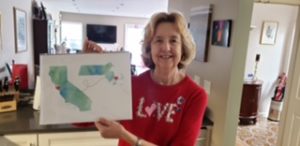
Dr. Barbara Fatum’s SEL Story
https://youtu.be/a1OfbwJYLMc
Gaining Emotional Intelligence (EQ) skills made me more aware of my behavior and made it easier to change things I didn’t like about myself. There was a point in time, earlier in my life, when I prided myself on “not suffering fools lightly.” When I was irritated with someone else, my family called my response “the ice queen of death!!” They said my voice would become very quiet, but steely, and my tone would become one that told people to “watch out.”
I became aware that this might not be the best way to handle difficulties and challenges when I took my first Emotional Intelligence assessment during a training as a school psychologist. I scored quite high on Consequential Thinking, but quite low on Empathy. Thinking about that, I realized that I needed to develop a better awareness of my own emotions and work on expressing them. This led to working on listening carefully to people, understanding others’ points of view and walking with them on their journey. I have been working on these EQ skills for many years now and am happy to report that my family says that the “ice queen of death” doesn’t exist anymore.

“Exercising Optimism and Building Resilience“
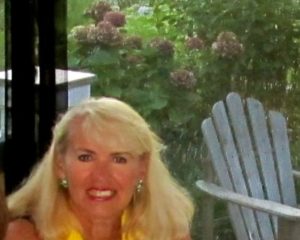
Deborah Havert’s SEL Story
I was always told that I was an optimist and I wore that as a badge of honor, a badge of pride. However, when I was able to dig deep into the research, study more about the choices we have in life, and then test real-life application of the practices of optimism and resiliency, that is when I fully owned my realistic optimism thinking and resilient behaviors. Learning the skills of Social and Emotional Learning enabled me to be clearsighted and prepared to take on other challenges.
The most dramatic application of the skills of optimism and resilience occurred when I was working as Associate Head of Synapse School and needed to stop working near the holidays in December of 2012. With tremendous back pain and no one being able to diagnose what the problem was, I finally made it back to my home in Houston and continued the quest to find answers. Thanks to my colleagues who cared for me until I could travel on a plane back to Houston.
Finally after weeks of visitations to doctors, constant pain in my back, and many medical tests, one of the doctors called and said that my husband and I needed to quickly prepare to come to the Memorial Hermann Hospital in the Medical Center of Houston, as the diagnosis was grim. He said that the hospital was ready for us to arrive. I had already lost feeling in my left leg and knew something was terribly wrong. I was heartened and hopeful that there would be answers soon. My optimistic thinking was kicking in.
After a long MRI testing, and a specialized neurosurgeon being called in to the hospital, they knew time was of the essence in getting me into surgery. Although there was really no room for my surgery, as the day was fully booked with many surgeries, they said mine had to be done immediately. As I heard the doctors plan for my surgery, they were compassionate, thorough with their explanations, and empathetic. They knew I was very frightened and worried. However, I had trust in the doctors who were known for their expertise. In fact, Dr. Michelle Johnson, who was called in especially for this surgery, would become a heroine of mine.
I had a spinal epidural abscess, which was very serious and very rare. Would I be resilient? Would I use my optimistic thinking? The surgery and the aftermath of the surgery, including learning how to walk again with much physical therapy and practicing various skills of living with my occupational therapist, was hard work. However, my doctors, nurses, and all of the staff at TIRR Memorial Hermann Rehabilitation Center were so supportive and kind. They prepared me for returning home and continuing my therapy with a physical therapist visiting my home.
Over months of rehabilitation, I got stronger and asked my husband if he thought it wise to attend the 7th NexusEQ Conference in Boston, where I was presenting with a friend. I would take my rollator with me in order to walk. He knew I wanted to attend and work through my challenges walking. So the decision was made. Much to my surprise, while attending the conference I received the Optimism Award for my display of optimism no matter what!
After returning to Houston, and finally being able to walk on my own, I had an appointment with my heroine, Dr. Michelle Johnson, my neurosurgeon. She watched me walk in and shared with me that if it would have been 2 days later that I came for surgery, I would probably have been completely paralyzed and then days later passed away. She shared that as she saw me walk in with no support, she felt she was able to tell me. A success story!
That is not the end of the story. I then went to visit the floor I had been on at TIRR Memorial Hermann Rehabilitation Center. As I walked in, I saw many of the people who were my doctors, nurses, and other medical supporters. They cheered to see me walk and then told me something so impactful. They said that one of the reasons I made it through all of the challenges was because of my optimism. It was one of the major determining factors.
So as you see, learning the skills of social and emotional learning can be life-affirming, and life-altering. I may have been called an optimist much of my life, however, now it is embedded in who I am.

“SEL and Me”
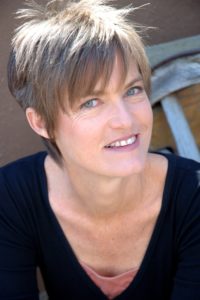
by Amy McConnell-Franklin, PhD
20 years ago when I first heard Anabel Jensen, Ph.D., President of 6 Seconds state that we have a choice regarding our thoughts, feelings and actions, I remember agreeing that we have choice in our thoughts and actions and actively challenging the proposition that we have a choice about our feelings.
I had lived some 40 plus years with no systematic, intentional education about emotions; about their causes and consequences, about the information they carry, about the nuance of meaning in different emotions, about the promise and potential they offer for living a better, happier, more purposeful, compassionate, accountable and satisfying life.
Without an understanding of emotions and a sense of choice around them I gave emotions, mine and others, either too much or too little attention and power. I was blown about in the wind of my feelings and felt little responsibility for my moods. I could control my feelings but not navigate them. The difference is critical. In the first case I was stuffing the emotions, hiding from them, controlling them. In the second I was recognizing and mining them, recognizing patterns and associations, interpretations and conclusions, gaining some intelligence around my emotions, neither ruling them nor being ruled by them.
Now when I notice I feel unsettled I have a tool box of skills that help me step aside and pause, to recognize where feelings arise in my body, to accurately label them distinguishing one from another, to navigate feelings and honor the information they offer or not- to choose my emotions and therefore my next response, my freedom and actions.
I’m a calmer, more hopeful, more intentional person as a result. I feel a greater sense of agency in my life. In better moments I remember to remain curious about my emotions, and those of others. I’ve become an emotion scientist. The world and relationships are far more interesting and peaceful as a result.
Click below to listen in as Amy and Feroz Kahn, a Fulbright Scholar from Singapore studying for an MS in Disaster Studies at Tulane University, discuss SEL and resilience in individuals, families and communities at the 2021 Families in Global Transition Virtual Conference.
https://drive.google.com/file/d/1D6tZ7-_BefxGnkZLoO8nW49sLp34UCKF/view?usp=sharing

“Emotionally Clueless”
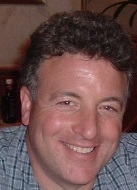
Matt Perelstein’s Story
I was not a very happy child.
My parents were great, but my dad was an officer in the US Air Force and we moved, a lot. According to the psychiatrists and counselors I went to (all the way back to 6th grade), it seems I developed an ‘attachment disorder’ and had ‘paranoid tendencies’.
I came to believe that there was something wrong me (which is what I was told). I felt unlovable, separate, a part from, strange, disconnected, shameful and rejected.
Then, one fine day when I was 25 (1985), I was invited to a friend’s graduation from a workshop called ‘Understanding Yourself & Others’ in Boulder, Colorado. I reluctantly agreed, but was so happy I gave in, because once I got there, I knew immediately that this might be what I was looking for. I was right (for a change). In the workshop, I was THRILLED to find that my biggest ‘problem’ was that I simply had NO CLUE how to deal with my internal world; my thoughts, feelings and emotions!
I was an angry dude. I was a hurt dude. I was a sad, and very, very fearful dude. Yet, I didn’t know how to manage and deal with any of it. It turns out that I had gobs of painful feelings and negative belief systems running around inside me. I realized that, a) I wasn’t ‘broken’ (well, maybe a little), I was just emotionally ignorant, and b) so was everyone else!
I decided then and there that I would spend the rest of my life FINDING OUT how to deal with me, and sharing what I learned with others.
I eventually became an instructor of the workshop, met my wife in the training, and we have been married and teaching EQ & SEL ever since (35+ years now).
Two years ago we started a non-profit called EQ4Peace Worldwide, Inc., encouraging and enhancing emotional education (EQ) at all levels, everywhere. Please join us in bringing SEL/EQ to the world, so kids don’t have to suffer from the painful ignorance I had to endure. We can build emotionally strong, peaceful, aware, loving people in an emotionally strong, peaceful, aware, loving world.

“How a bunch of girls put me on the path to SEL“

Subbu Parameswaran, Co-Founder, Learning Curve Foundation
It was sometime in 2012, when I had just quit my (fairly lucrative) corporate role, and was thinking about how I could make a difference to the world I live in.
One bright Sunday, Gayatri (my partner and co-founder) walked into a girl’s shelter here in Hyderabad – which housed around 40 or so orphan/semi-orphan girls. They seemed quite excited to see us, and wouldn’t leave our side (which we later realised was a sign of insecurity and low self-esteem). The caregivers there had one ask – help these girls with their academics because they were so far behind. So we got to it – every Sunday, we would be there in the morning, divide them into groups, and tutor them on math and science. It was definitely satisfying – but there was something missing.
3 months in, we found that we were not cutting it. Neither were we seeing much improvement, nor were we able to build trust with the girls. And that’s when we started digging a little into the back story, and what we found shook us to our very core. Most of these girls had no families. Most of them had been abused. Many of them had seen violence that we wouldn’t wish for our enemies. And that’s when we realised that these girls had lost their sense of connection to the world, and they had clear self-esteem issues. And we asked ourselves, “How can anyone do well in academics if they are not well mentally?”
And that’s when we changed tracks. We’d been researching the area of SEL, so we put that to work. We no longer sat with them to do sums – we started building relationships. We created spaces for them to get in tune with their emotions, express themselves, trust themselves and build relationships. Every Sunday for a year we went.
And in 6 months, we started to see the magic happen – the girls seemed to be able to regulate their emotions. Aggressive behaviours started to reduce. They were able to show kindness and compassion towards themselves and the younger ones. And their grades started to improve! In fact, 2 of them went on to complete their high school and moved forward to higher education!
Learning Curve was born that day. And our journey of bringing social-emotional learning to underserved children started. That journey has taken us to over 370 schools in India, allowing us to impact 100K children, 2500 teachers and 27K parents.
And that is the path I have committed to – for the rest of my career and life.

“A Practice of Gratitude”
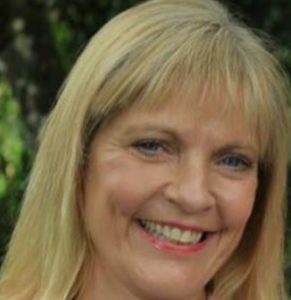
Karen Schaal’s Story
Karen taped a wonderful, 3-minute video of her story, on Gratitude. Please enjoy!

“Resilience is the Key to Optimism”

Hanley Brite
I was already into my seventies and had the extremely good fortune of good health my whole life, having spent less than a week in a hospital bed since the day I was born when, three years ago, I contracted a very serious staph infection on the bone of my right ankle that led to four surgeries over the course of three months and twenty-two days in the hospital. In the midst of this, amputation was a possibility but turned out to not be necessary. It knocked me for a loop.
Physically, I got through it, recovered, and today I am as (very) active as ever. Emotionally, my anchor was the support I received from my wife and my foundational belief that, no matter what, we find a way. We get through it. That belief manifests itself within me as a mighty force that steadies me in crisis and rises my spirit at the times that are both most challenging and most needing of it.
We get through it; we find a way.

What’s your SEL Story?
(please tell it in a Comment, below!)
